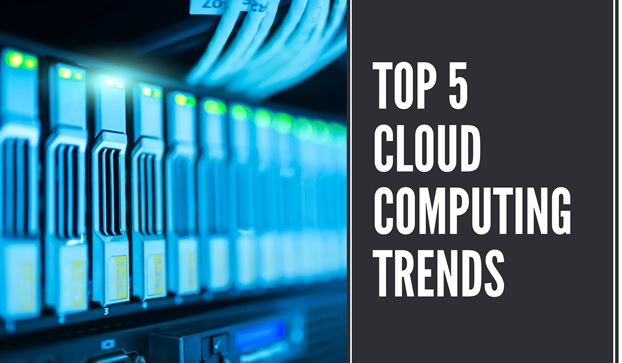Technology only continues to grow and evolve, adapting to the changing times and requirements.
And if there is one technology that has grown in leaps and bounds in the past year, it has been cloud computing.
Cloud solutions offer the much-needed bridge to fill the gap formed due to the mobility restrictions and the increasing remote work requirements.
It has served as the backbone for several data-driven and app-based technical stacks powering most existing digital solutions.
It has also been a critical part of the ongoing digital transformation across various industries worldwide. And by the looks of it, the cloud is expected to stay and grow more in the upcoming year.
But the real question is the specific use cases and application areas of cloud computing that will be at the forefront in 2021.
Knowing that could help you better devise your digital strategy and keep up with the changing times. We present to you the top 5 biggest cloud computing trends for the year 2021.
Interoperability Between Multiple Cloud Vendors
So far, popular public cloud vendors like Amazon, Google, and Microsoft have followed a one-stop solution approach offering a varied set of cloud services to provide maximum coverage for all cloud computing needs of an organization.
But it has been long observed that each of the cloud providers has certain strong application areas over the other and certain weak areas.
So the customer might naturally want to pick and choose solutions from multiple cloud vendors as per their requirements and expect it to work consistently well along with the various platforms.
This calls for big cloud providers to develop bridge applications between their platforms to facilitate smooth data transfers and collaboration.
Such multi-cloud trends can be beneficial for both the customers as well as the cloud provider. More developments can be expected in this use case, and we can also expect more IT companies that simplify multi-cloud operations to pop up in 2021.
AI-Powered Cloud Computing
AI and Machine learning have been the buzzwords among the tech industry for quite a long time, and their appeal does not seem to be waning any time soon.
AI technologies can enhance cloud services and automate much of the organization’s tasks, thereby improving productivity and efficiency.
There is much ongoing research such as autonomous vehicles, smart city planning, pandemic response systems, and more, all powered by AI.
AI and ML also find applications in data center maintenance, cloud monitoring solutions, and real-time insights on cloud usage and optimization.
Cloud-Based Gaming Services
Thanks to technological advancements and music and video streaming services, cloud providers can now also deliver gaming services in real-time.
For a monthly subscription plan, you will be able to access a wide range of gaming resources and play games with your own devices, which would not have been otherwise possible.
Gaming requires powerful computing resources that can be expensive for a commoner.
Cloud computing will soon bridge the gap and allow users to gain a quality gaming experience at a low cost rather than spending thousands of dollars on expensive gaming hardware.
Hybrid Cloud Solutions
Organizations have found hybrid solutions to be the optimal choice out of the various cloud deployment models.
Hybrid cloud models provide a smoother transition from legacy systems and offer better options for data compliance and security policies.
It lets users pick from the various services provided by a service provider and allows users to integrate their legacy systems and cloud solutions, thereby giving them the freedom to keep certain sensitive data private.
Popular cloud vendors, too, recognize the huge market for hybrid solutions. They enable more varied options for cloud deployment that best fits the individual and distinct needs of a company.
Hybrid solutions give the user finer control over data and services. And new advancements in this model are expected to let users shift their existing systems to the cloud with little effort. The trend is heavily leaning on bare metal cloud space that provides raw computing power and storage while allowing users to adapt it to their own application needs.
Virtual Cloud Desktops
This year, the most exciting trend you can look out for in the cloud computing space would be the decreasing dependency on actual computer hardware.
IT support companies can now easily simulate an entire workstation environment and deliver it to a desktop or laptop screen.
This can reduce hardware costs, manage employee work hours and enhance productivity as well. Virtual cloud desktops eliminate the need for redundant hardware and also the cost of updating old hardware.
Dubbed as Desktop as a Service, Virtual Desktop is available with popular vendors like Amazon as the Workspaces and Microsoft as the Windows Virtual desktop.
Google also offers a similar service to their Chromebook devices.
These are some of the cloud computing trends that we see upcoming in 2021. What are your views on this?
Let us know in the comments below.
